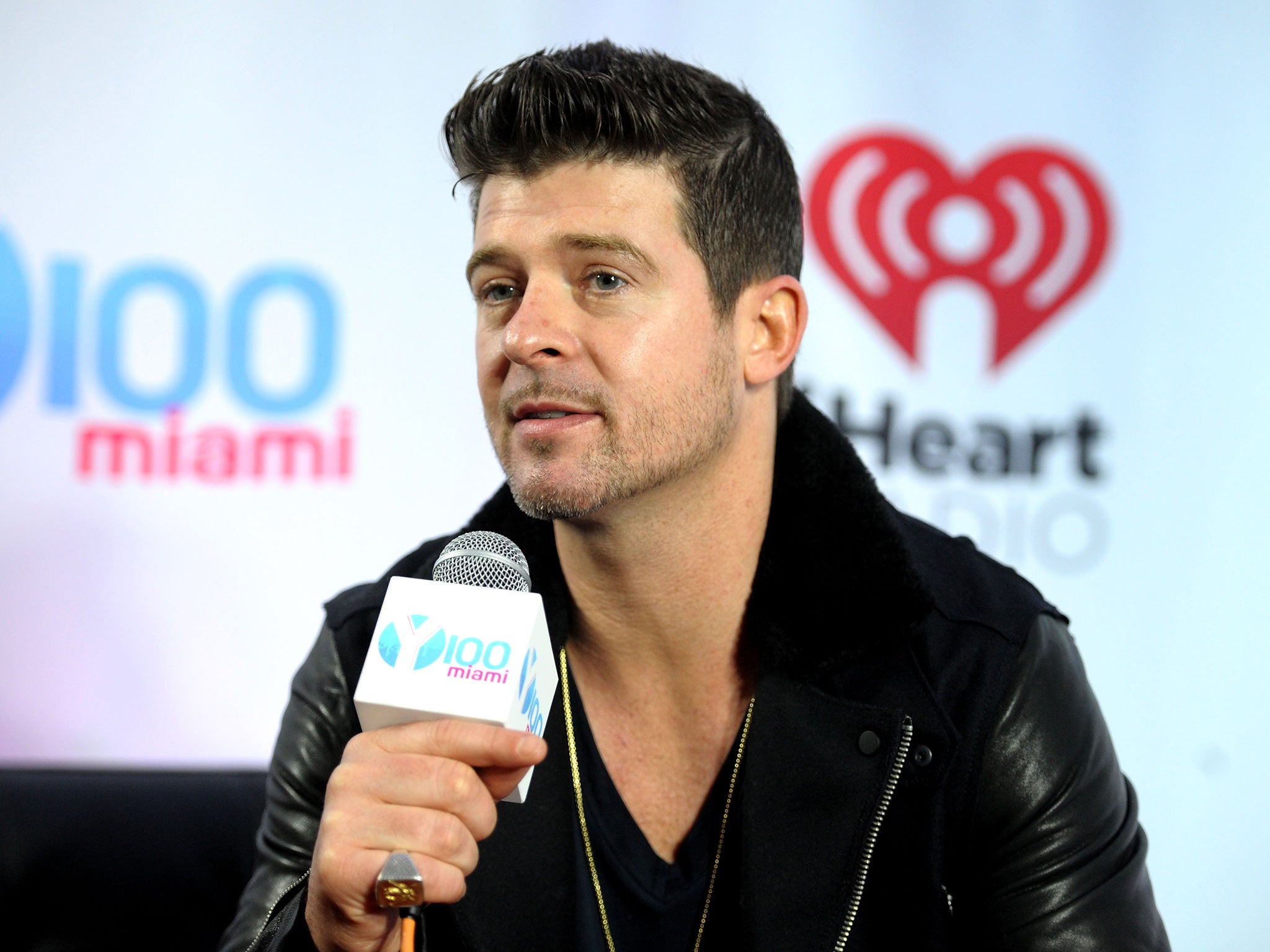Blurred Lines deposition: Robin Thicke admits to being 'high and drunk' during every interview he gave in 2013
Footage of the singer's testimonial from 2014 has been released by a federal judge

Robin Thicke has admitted that he was 'high or drunk' during every interview he gave in 2013 as part of a court case dealing with plagiarism of his hit song "Blurred Lines".
Thicke’s fall from grace has been well documented, but accusations that "Blurred Lines", which features Pharrell Williams and rapper T.I, is a rip-off of Marvin Gaye’s "Got To Give It Up" have seen the trio face intense scrutiny over how they came up with the song.
Video footage of Thicke dismissing his sobriety in 2014 has now been unsealed by a federal judge.
“With all due respect, I was high and drunk every time I did an interview last year,” says Thicke, when asked about his sobriety during interviews with Oprah Winfrey and VH1.
In 2013, Williams laughed off the comparison, claiming the songs were in a different key, which has led to claims he doesn’t know how to read music, while Thicke claimed last year he was “high on vicodin” when he was in the studio in an attempt to question his own involvement in the song that made him so much money.
The plagiarism case began when Gaye’s children sued Thicke and Williams, saying their song infringed the copyright of their father's original composition. The singers denied copying Gaye’s music.
Gaye’s family were later awarded $7.3m (£4.900,000) in damages, including $3.4m (£2,200,000) in profits that Thicke and Williams were found to have derived from the infringement.
Join our commenting forum
Join thought-provoking conversations, follow other Independent readers and see their replies
Comments